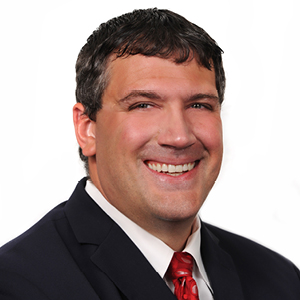The Future of Medicaid Depends on Meaningful Reform
Nov 15, 2017
On October 30, the Controlling Board authorized spending another $264 million of your taxpayer dollars so that the state could draw down more than $630 million of your taxpayer dollars from the federal government to pay for Medicaid. As I stated after the vote:
“Before any further dollars are appropriated, the General Assembly should make certain that the Kasich Administration will seek waivers that add meaningful personal responsibility requirements for those in the expansion population, including the Healthy Ohio waiver, which would empower Medicaid recipients to obtain better care, put Ohio’s Medicaid program on sounder financial footing, and ensure that needy Medicaid enrollees have to access to good medical care.”
Medicaid spending was exploding well before the misguided expansion in 2013. Despite the happy talk of Medicaid coming in “under budget,” the influx of more than 700,000 able-bodied adults, according to the latest enrollment numbers, has nearly stressed the program to its breaking point. In August 2017, the total spending for Medicaid totaled $2.4 billion.
That’s is $354.9 million, or 17.4 percent, more than spending for the same month in the previous fiscal year!
Fortunately, the Kasich Administration has said they are crafting waivers that will stabilize and improve Medicaid by including minimal work requirements and minimal cost sharing for the able-bodied adults in the expansion population (this excludes the elderly and the disabled). This is a positive development and one that will ensure Medicaid is stable and able to serve future generations of Ohioans.
To achieve this goal and ensure Medicaid stability, it is imperative that the General Assembly holds the administration accountable not only in merely drafting the waivers, but in ensuring that they accomplish meaningful reform.
The good news is, the director of the Centers for Medicare and Medicaid Services (CMS), Seema Verma, has stated the administration will approve work requirements for Medicaid. However, we must be careful, work requirements with a laundry list of exemptions will not stabilize Medicaid and ensure it is around in the future, nor will premiums that are too low. We must find the proper balance that enables low-income Ohioans in the expansion population to afford Medicaid while stabilizing the program.
Ultimately, for any of these waivers to be effective in stabilizing Medicaid there must be teeth in the requirements, otherwise they are little more than political window dressing. One such provision should be a requirement that abled-body adults in the expansion population must pay the minimal premium and meet the minimal work requirement to access the program. These requirements would not only help stabilize Medicaid, but would help people rebuild their lives through personal responsibility.
These ideas aren’t new, and they have been proven successful in many states for children in the Children’s Health Insurance Program, better known as CHIP. Given the success of requirements in CHIP, it would be wise for Ohio to implement the same model for those abled-body adults in the Medicaid expansion population.
There are other requirements Ohio should look at. For example, people who arrive at the emergency room without any coverage should be treated under charity care laws. This provision would encourage people to obtain and maintain health coverage when they are healthy. This policy has been approved by the CMS in a waiver requested by Iowa and will help reduce gaps in coverage while avoiding people only applying for Medicaid when they are sick. These provisions would create a more stable system and would enable people to more smoothly transition to private health insurance.
Ohio leaders have a chance to ensure the stability of Medicaid for future generations while providing care for those in need. This is an opportunity that should not be missed. If the administration is unwilling to move forward on these commonsense reforms, then the General Assembly should move forward with overriding vetoes including the Medicaid Freeze and Healthy Ohio.
Failure implement these commonsense reforms will only hasten the day of fiscal reckoning for Ohio.
Greg R. Lawson is the research fellow at The Buckeye Institute.

